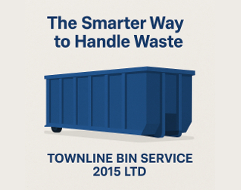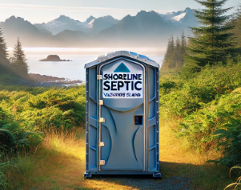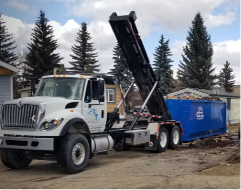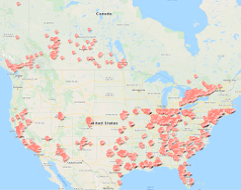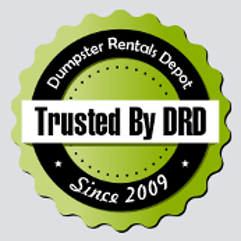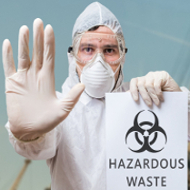Waste Management Systems
Valeriy Mykhaylenko, Ph.D. Assoc. Professor, Taras Shevchenko National University of Kyiv, Ukraine
The three-year SWC-ENV-IND project started in the five countries Lithuania, Ukraine, Georgia, Russia and Switzerland in December 2009. The main research activities aimed at investigation on the seasonality of Municipal Solid Waste (MSW) generation and composition and relevant impacts. Project initiated Kaunas
Technological University with support from a scientific fund of Switzerland. The scientific research is coordinated by Paul Scherer Institute (Switzerland) and Kaunas Technological University (Lithuania). Since December 2012 the project activity was extended for accomplishing additional workload at no cost basis till July 31, 2013.
Project goals and objectives
The project is aimed at scientific, technical and human resources development. The main project objectives are focused on determination of seasonality of municipal waste generation and composition and to disseminating EU member states experience of municipal solid waste (MSW) management for simulating and forecasting scenarios inEastern European countries. Besides the research of the seasonality of MSW composition, an analysis of socio-economic indicators, being typical for each partner country, was performed. Project goals and objectives are the following:
- Development of a MSW investigation methodology;
- Research of seasonal fluctuations of MSW composition and their correlation with socio-economic and environmental indicators;
- Training of personnel for the implementation of a MSW flow management system.
The overall project activities in Ukraine have been accomplished in accordance with the scientific and technical description of the application. The start of the activities was a bit delayed due technical and bureaucratic procedures. In spite of this, some additional workload in terms of monitoring landfilling species, initiative for studying groundwater pollution, as well as dissemination of project related information (e.g. conference presentations, website) and setting up a networking collaboration has been discussed and performed with the project coordinator.
Natural, social and economic factors (WP-1)- Country profile A review of Ukrainian problems in the housing sector has shown insufficient treatment of municipal solid waste (MSW) that caused a “creeping disaster" and requires urgent intervention of all stakeholders. Among the mentioned issues are lack of National waste treatment strategy, insufficient financing of local government activities and high risks for private assets involvement. The problem is mainly connected with an out-of-date methodology of deposing waste on landfills without any preliminary processing. Ukraine is the second-largest country in Europe with an area of 603,700 sq. km. The country's climate is moderately continental, with the exception of the southern Crimea that has a more Mediterranean type of weather - hot dry summers and mild winters. Average temperatures in January range from 0° on Crimea's South Shore to -8° C on the northeast border with Russia and between 18° and 23° C in July. The summers last between May and September, while the winters stretch from October to April. The absolute extremes attain very high values. The strongest degrees of heat are +37° to +43°. The mean annual maximum for Kyiv is +32.1°, the absolute minimum comes to - 33.1°. Neither rainfall nor snow fall is distributed evenly in Ukraine. 90 percent of Ukraine receives between 450 and 700 mm rainfalls a year. Frequent rains are in late October and November, and snow lies on the ground between 40 and 100 days a year from December onwards.
Waste related issues belong to the biggest environmental problems of Ukraine. Dumps cover 165 thousand ha, (8.1 thousand ha of MSW landfills included) representing about four percent of the territory that exceed the area of all National parks and natural reserves of Ukraine.
Separate collection of MSW is actually not introduced and applied only in 153 of 459 Ukrainian cities as a pilot projects. The only waste sorting station was built in Kiev in 2005 with a capacity of 200 tons of MSW processing per year. Only 2,5% of total waste amount is burned at two outdated incinerating plants located in Kiev and Dnepropetrovsk. Two additional plants in the cities of Sevastopol and Kharkiv were stopped. The main technical problems of MSW treatment is old-fashioned garbage trucks and outmoded containers for collecting municipal waste, lack of available sites for building new landfills and violations of technical regulations for solid waste burial.- Legal framework The Ukraine State Committee on Housing and Municipal Services has developed a Program of Solid household Waste Management in Ukraine for 2005 till 2011. This builds the basis for the National Municipal Solid Waste management Strategy (NMSWMS). There are five strategy themes: technical, financial, institutional, legislative development, public information and educational. For the legislative development the strategy includes the following goals:
- Upgrade and revision of existing waste management legislation,
- Monitoring and enforcement, and
- Public information and education.
Over the past five years, the Verkhovna Rada of Ukraine (VRU) has taken close to one thousand programs and 200 development concepts. Each of these programs involves the development of relevant programs at the regional level. In the period from 1998 to 2004, the VRU drafted a strong legal framework to bring the provisions of this law in effect.
Currently adopted are more than 50 regulations on state level (14 of the Law of Ukraine and about 30 decisions and orders of government, to gradually approach to the requirements of European legislation.
Government of Ukraine has passed amended to its municipal waste law that among other changes introduced a separate municipal waste collection system. The amendments obligate the developers of real estate to create special sites for containers to store and collect municipal waste and also require the property and land owners/lessees, waste collection companies to ensure separation at source and separate collection of municipal waste. Waste incineration is also restricted to energy generation purposes only under the new law, which also prohibits the development, construction and exploitation of the municipal waste landfills which are not equipped with underground water protection and bio-gas and filtrate collection and treatment systems.Violation of waste legislation will also be subject to an increased administrative fine two to three times greater than previously at about $43-$170 for individuals, $106-$213 for private entrepreneurs and companies' officers. Legislative initiatives planned are the following:
- Expansion of local communities’ rights regarding the ownership of waste, allowing for better monitoring of the performance of waste collection services;
- Obliging citizens to hold separate collection of waste and obliging legal entities providers of waste collection services – to ensure separate collection;
- Starting from January 1, 2013 – obliging all citizens to sign agreements with the companies for collection of domestic waste;
- Starting from January 1, 2016 – prohibition of unprocessed waste disposal;
- Synergy projects (WP-8) DESPRO, Switzerland Swiss-Ukrainian Project “Decentralization Support in Ukraine” (DESPRO), funded by the Swiss Agency for Development and Cooperation (SDC) and implemented by the Swiss Resource Centre and Consultancies for Development in 40 local community projects since 2010. Project is focused mainly on improving quality of and access to public services aimed at further implementation and promotion of the decentralized model of rural water supply. DESPRO initiated a step-wise planning process in the field of MSW Management in Tul’chyn rayon, Vinnytska oblast. The baseline data concerning the composition and quantity of solid waste in partner communities was collected. Planning framework for integrated MSWM system was established in cooperation with UNDP. In Bakhchysaray rayon, AR Crimea, DESPRO is in the process of developing an appropriate and cost efficient form of MSWM cooperation. See more at: www.despro.ua
UNDP ProjectENPI-East
EU Project “Waste Governance ENPI-East – European Neighbourhood and Partnership Instrument” started in late 2009 and has 4-year duration. The project is aimed to promote establishment of a sustainable waste management system by enhancing waste management standards, effective implementation of national and local waste initiatives, improving the processes of waste collection and sorting and promoting application of recycling systems, usage of recycled materials and safe disposal of waste. The pilot area is Zakarpatska obl. The project is implemented by a consortium led by Eptisa Servicos de Ingenieria (Spain). See more at: http://www.wastegovernance.org/main3_eng.html
Clean City Ukraine
This project is designed to attract investment, expertise and technology into an initial scheme for the construction and operation of ten industrial scale waste disposal plants in Ukraine working in Public-Private Partnership (PPP) with the State and city administrations. The State will finances the development of a feasibility study for the project in ten cities, assist in the provision of land for the construction of processing plants and infrastructure and in negotiations between City Halls and investors on PPP agreements. The task of the Project “Clean City” – construction and on-going management of a network of ten industrial waste disposal systems and introducing of new waste processing technologies. See more at: http://investukraine.com/investment-opportunities/national-projects/clean-city#sthash.O0DeQ4ls.dpuf
P3DP Project, USAIDWaste composition, first seasonal data (WP-2)
Information collection (WP-1) After several meetings at Kyiv Regional Association of Ukrainian Cities (AUC) office, the medium-sized city Boryspol with about 53 thousand inhabitants and located close to Kyiv was selected as a pilot city. Boryspol City Council introduced quality management system of public service based on the international standard ISO 9001:2008 in 2008. One of the achievements is the evaluation of services received by residents from local governments. This fact was decisive in selecting the pilot city for studies of seasonal fluctuations of the composition of MSW.
One of the landfills, entitled “Eco-service”, was selected together with the Boryspol City administration for the field study. The results were reported for three different categories of waste origin, collected from three different districts dominated by a) offices, b) multi-family and c) single-family housing.The SWC project goals were presented to City majors of the Kyiv region at a local conference in May 2010, (Annex 1). A cooperation agreement between SWC-project and Boryspol City council that foresees information exchange and consulting services for Boryspol City and regional administrations was signed in May 2010. Deputy City Mayor provided the project team with access to information on landfill management and relevant social indicators.
Waste composition study (WP-2)
General principles of the research methodology were developed and implemented by experts of Kaunas University of Technology (KTU), Lithuania that reflected the EU standards of waste treatment. Based on the characteristics of solid waste flow control in Boryspol, the sample collection was modified. Features of household waste in Boryspol are collected from different residential areas and come to the landfill in the form of separate waste streams from apartment houses, private sector (single family homes) and office space. Landfilling was investigated over a period of 18 months. The systematic studies of seasonal changes in the composition of solid waste, as foreseen in the terms of reference (TOR) of the project, commenced in April 2010.Municipal waste is coming to the Eco-service landfill on garbage trucks and is then unloaded on-site. Thus, to investigate the samples directly from the containers, as specified in the method, proved to be impossible. In addition, the landfill does not provide a special place for research of solid waste. Samples were taken from the total mass after the discharge of garbage at a specially prepared surface (4x4 m plastic plane), as shown in the photograph below.
The sample types were collected and sorted out at the landfill. Waste from apartment houses, private sector and office space were studied separately once a month. This necessitated acting on-site three times a month. The total mass of the investigated waste was 650-900 kg per month. Each singular sample weight was 210-300 kg. Digital data was processed in accordance with the approved Kaunas methodology KTU, (Kaunas, 2010).Adjusting to regional conditions (WP-3)
- Seasonal sampling analysis
The energy content and simulation of seasonal MSW accumulation scenarios was planned to calculate by the Lithuanian project partners. Based on all these data, it was decided to analyse the changes in waste energy content in dependence from singular fractions, from the origin of waste and from one relevant social parameter.
- Groundwater pollution
The focus of this additional study was to assess the potential groundwater pollution using a very limited amount of information and completing it with own measurements, literature data and by the use of models. Two models had to be purchased and the same for some basic materials to be used in a laboratory.
The combination of a GIS-based model and three other models, which complete each other, is a fairly new approach and was therefore presented on conferences in Kutaisi, Kiev and St. Petersburg. This same methodology was selected in the frame of a landfill mining project on the isle Saaremaa, Estonia in 2012/2013. It helped to roughly assess if leachate will pollute the nearby Baltic Sea.
- Dissemination of information (WP-8)
1. Boryspol City Council
2. State Ecological Academy of Postgraduate Education and Administration
3. The private enterprise “Rada” http://www.mpprada.com.ua/?set_lang=en
Harry Cotten is the Dumpster Rentals Cooperative Customer Support Manager. You can find him and read more of Harry's posts by visiting Harry Cotten Google + profile.
- Published: 2013-11-12T10:22:37-08:00
- Author: Valeriy Mykhaylenko
